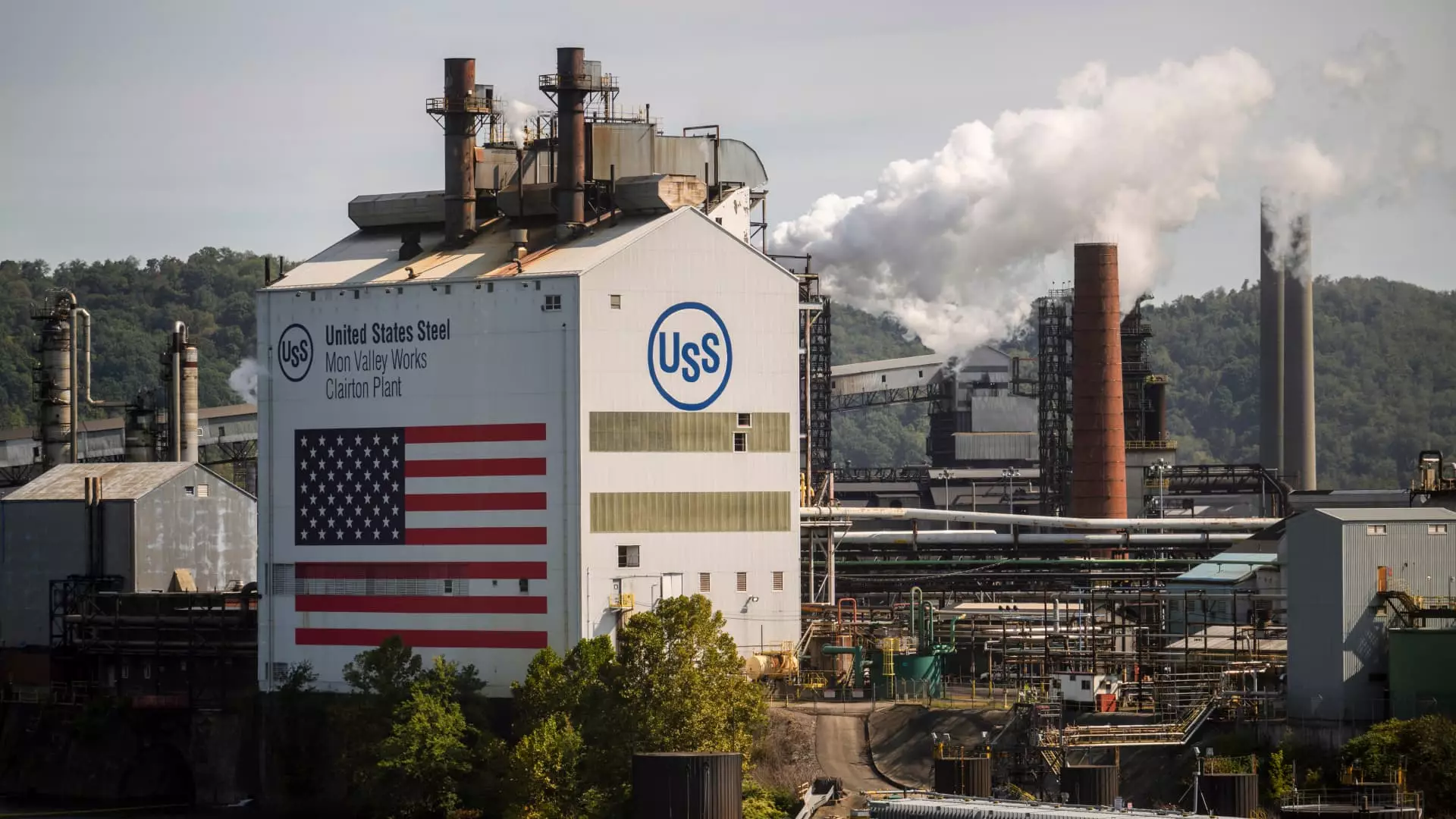In a dramatic twist to the ongoing saga of U.S. Steel and Nippon Steel’s merger discussions, the Trump administration has signaled a potential reopening of negotiations that were prematurely halted under President Biden. This controversial move is not just an ordinary legal maneuver; it echoes a growing trend of catering to corporate interests at the expense of national sovereignty. By allowing an extension for deadlines regarding a lawsuit against the Committee on Foreign Investment in the United States (CFIUS), the administration appears poised to step off the road of fairness and transparency and down the slippery slope of crony capitalism.
The motive of the move raises substantial questions. The Trump administration’s motion to extend deadlines for the lawsuit sheds light on a possible resurgence of corporate influence over national security matters—a hedge against the previous administration’s more cautious approach. The lawsuit alleges that Biden predetermined the committee’s decision to halt the merger due to a desire to gain favor from the United Steelworkers union, strategically leveraging labor politics in rust belt states like Pennsylvania. This intertwining of corporate interests and political machinations reveals an unsettling reality: that our regulatory bodies may be unduly influenced by partisan politics.
Will National Security Be Compromised?
Concerns about national security factors prominently in the conversation surrounding this merger. U.S. Steel and Nippon Steel’s claims that the decision was politically motivated cannot be taken lightly. The implication that a foreign investment could pose risks to American economic stability cannot merely be brushed aside in the pursuit of corporate gain. While the firms seem to be positioning themselves as victims of an unjust system, the fundamental question remains—does the integration of foreign ownership truly serve America’s best interests?
The Trump administration’s comments on potentially allowing Nippon Steel to take a minority share complicate matters even further. The idea that foreign ownership, even in a limited sense, automatically translates into a positive outcome is presumptuous. Such measures must be weighed carefully against the backdrop of potential long-term implications for U.S. industrial sovereignty.
Political Leverage and Corporate Influence
This case exemplifies an alarming interplay between political leverage and corporate interests. The administration’s actions appear to be conducted under the guise of fostering economic opportunity, but they could undo years of careful scrutiny regarding foreign investments. At the heart of the matter lies a troubling precedent—allowing a company with ties to a foreign government to influence a critical segment of the American economy raises profound ethical questions.
While some might champion such mergers as pathways to innovation and economic growth, one cannot ignore the adverse implications that could follow. The allure of fast profits can often cloud judgment, creating a systemic risk not only for the industries involved but also for the general populace. A more cautious approach, taking into account broader national interests rather than isolated economic benefits, would reflect a progressive and responsible governance model.
Ultimately, as discussions around this merger unfold, the implications for American workers, industry standards, and national security must be at the forefront of deliberations. The stakes are too high for this issue to be reduced to mere legal technicalities; it reflects deeper societal values about who truly owns the American dream.


Leave a Reply